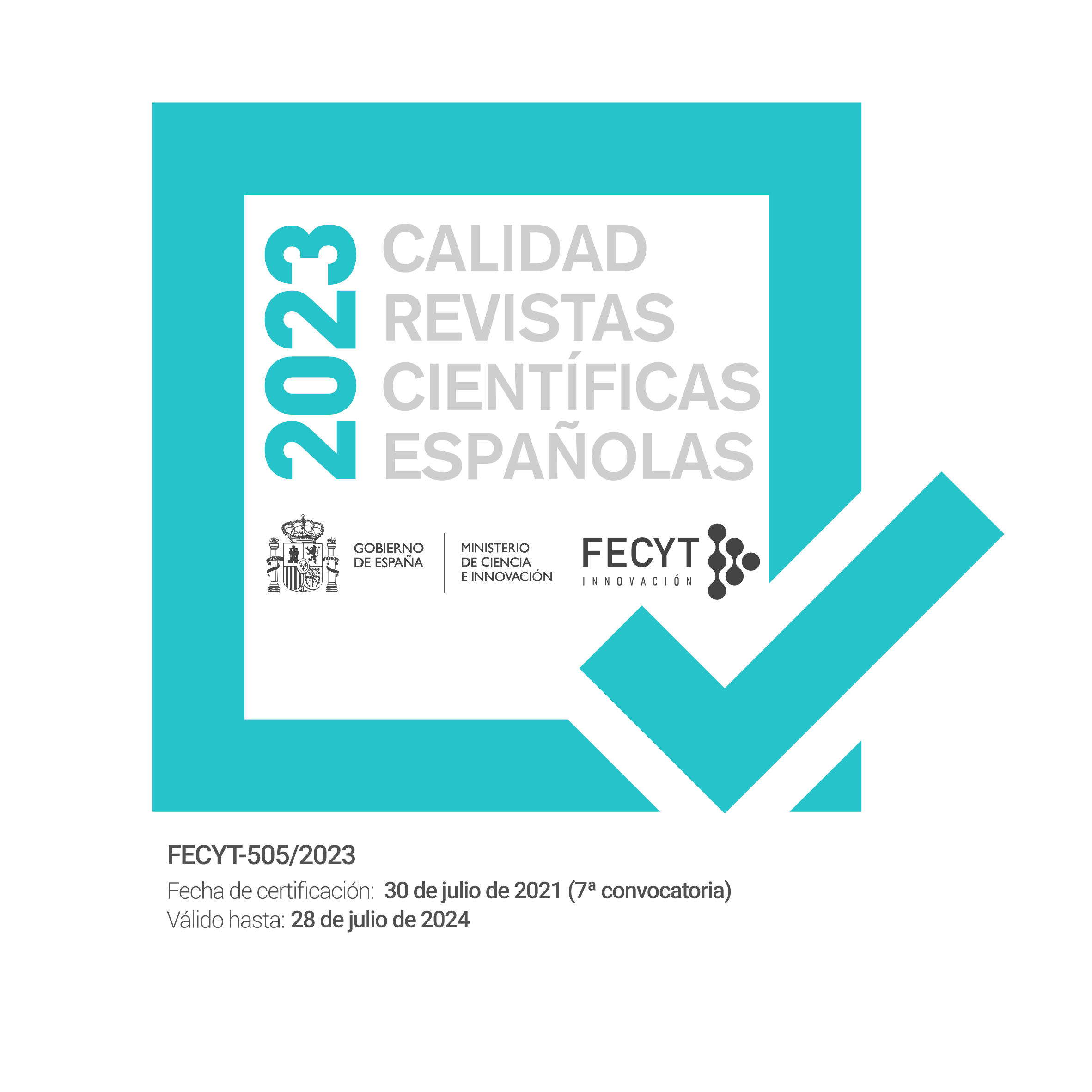Crítica abstracta como “patología”
Resumen
Abstract critique as “pathology”
Resumen: En lo que sigue pretendo poner en discusión el carácter y el sentido de cierta práctica, que se ha popularizado en los últimos años que se mueve entre la denuncia y la crítica. Esa práctica consiste en, generalmente con buenas intenciones, poner de relieve o exponer públicamente acciones o aspectos potencialmente condenables de personas, comportamientos, relaciones, instituciones u obras culturales, y ha sido entendida como parte de cierta “cultura de la cancelación”. Después de aclarar en qué medida se podría caracterizar ese tipo de práctica como “pensar abstracto” en el sentido de Hegel (I), discutiré, haciendo mención a algunas distinciones planteadas por representantes de la Teoría Crítica de la Escuela de Frankfurt, en qué sentido ella se podría interpretar todavía como una forma de crítica (II), por qué sería posible considerarla como “patológica” (III) y, finalmente, en qué sentido, y cómo, a pesar de ello, podríamos entender esa práctica efectivamente como forma de crítica (IV).
Abstract: In what follows, I intend to discuss the character and the meaning of a certain type of practice, located between denunciation and criticism, which has become popular in recent years. This practice consists of putting in relief or exposing publicly, usually with good intentions, actions or potentially condemnable aspects of persons, institutions and cultural works, being often understood as part of a “cancel culture”. After clarifying the extent to which this type of practice could be characterized as “abstract thinking” in the sense of Hegel (I), I shall discuss, using some distinctions from representatives of Frankfurt School Critical Theory, in what sense this practice could be interpreted as a form of criticism (II); why it might be regarded as “pathological” (III), and what meaning, and how, it could still have as a form of criticism (IV).
Palabras clave: pensar abstracto, Hegel, teoría crítica, cultura de la cancelación.
Keywords: abstract thinking, Hegel, critical theory, cancel culture.
Palabras clave
Texto completo:
PDFReferencias
Adorno, Th. W. 1996, Negative Dialektik. Gesammelte Schriften. Vol. 6 (5ª edición), Frankfurt a.M.: Suhrkamp, 7-413.
BBC 2020, Edinburgh university renames David Hume tower over racist views (en línea) -13/9/2020. https://www.bbc.com/news/uk-scotland-edinburgh-east-fife-54138247. Acceso 29 de septiembre de 2023.
Bosco, F. y Ortellado, P. 2023, Falsas rotas de inclusão. Periódico O Globo de 20/9/2023 (en línea) https://oglobo.globo.com/google/amp/opiniao/artigos/coluna/2023/09/falsas-rotas-de-inclusao.ghtml?fbclid=PAAaadkXSwjnB4O2snhjvXfBiTMLTb0E4tqtZAtZ5dh44pdEChgzIIwCNL1Hc. Acceso 29 de septiembre de 2023.
Dannemann, V. 2021, “La caída de Colón de los pedestales”, Deutsche Welle, 13/07/2021. https://www.dw.com/es/la-ca%C3%ADda-de-col%C3%B3n- de-los-pedestales/a-58254766
Gosálvez, P. 2023, “Así ha envejecido Pippi Calzaslargas: rompedora en género, anticuada en colonialismo”. Periódico El País, 1/7/2023. (en línea) https://elpais.com/television/2023-07-01/asi-ha-envejecido-pippi-rompedora-en-genero-anticuada-en-colonialismo.html). Acceso 29 de septiembre de 2023.
Hegel, G. W. F. 1990, “Wer denkt abstrakt?”, Werke v. 2 (Jenaer Schriften 1801-1807). Frankfurt a.M.: Suhrkamp, 575-81.
Hegel, G. W. F. 1990, ¿Quién piensa de forma abstracta? - es.hegel.net (en línea) (acceso 22 de octubre del 2021).
Hegel, G. W. F. 1991, Phänomenologie des Geistes. Werke v. 3. Frankfurt a.M.: Suhrkamp.
Honneth, A. 2000, “Pathologie des Sozialen: Tradition und Aktualität der Sozialphilosophie”, Das Andere der Gerechtigkeit, Frankfurt a.M.: Suhrkamp.
Honneth, A. 2004, “Gerechtigkeit und kommunikative Freiheit”, B. Merker, G. Mohr y M. Quante (org.), Subjektivität und Anerkennung, Paderborn: mentis, 213-27
Honneth, A. 2007a, “Eine soziale Pathologie der Vernunft”, Pathologien der Vernunft. Geschichte und Gegenwart der kritischen Theorie, Frankfurt a.M.: Suhrkamp.
Honneth, A. 2007b, “Rekonstruktive Gesellschaftskritik unter genealogischem Vorbehalt”, Pathologien der Vernunft. Geschichte und Gegenwart der kritischen Theorie, Frankfurt a.M.: Suhrkamp.
Horkheimer, M. 1988, “Traditionelle und kritische Theorie“, Gesammelte Schriften. Vol. 4, Frankfurt a.M.: Fischer, 162-216.
Jaeschke, W. 2003, Hegel-Handbuch. Leben-Werk-Wirkung, Stuttgart: Metzler.
Jaeggi, R. 2014, Kritik von Lebensformen, Berlín: Suhrkamp.68
Merriam-Webster 2023, Diccionario en línea. https://www.merriam-webster.com/dictionary/cancel%20culture. Acceso 29 de septiembre del 2023.
Michallon, C. 2021, “Final Harvey Weinstein accuser testifies hours after jurors were shown naked pics of the fallen movie producer” (en línea), https://www.independent.co.uk/news/world/americas/harvey-weinstein-accuser-trial-rape-accusation-victims-lauren-marie-young-a9320336.html, acceso 30 de junio de 2022.
Moura, R. 2021, “Devemos editar los termos racistas nas obras de Monteiro Lobato?” 29/1/2021. (en línea) https://www.uol.com.br/ecoa/ultimas-noticias/2021/01/29/devemos-editar-os-termos-racistas-nas-obras-de-monteiro-lobato.htm. Acceso 29 de septiembre de 2023.
Ritter, J. et al. 1971-2007, Historisches Wörterbuch der Philosophie, entrada “Kritik”, Basilea/Berlín: Schwabe.
Stahl, T. 2013, Immanente Kritik. Elemente einer Theorie sozialer Praktiken, Frankfurt a.M.: Campus.
UOL 2013, 3/10/2013. “Monumento às Bandeiras é pichado e sujo por tintas” (en línea) (https://noticias.uol.com.br/album/2013/10/03/monumento-das-bandeiras-e-pichado-e-sujo-por-tintas.htm). Acceso 29 de septiembre de 2023.
Vieweg, K. 2019, Hegel. Der Philosoph der Freiheit, Munich: C.H. Beck.
Enlaces refback
- No hay ningún enlace refback.


Esta obra está bajo una licencia de Creative Commons Reconocimiento-NoComercial-SinObraDerivada 4.0 Internacional.

